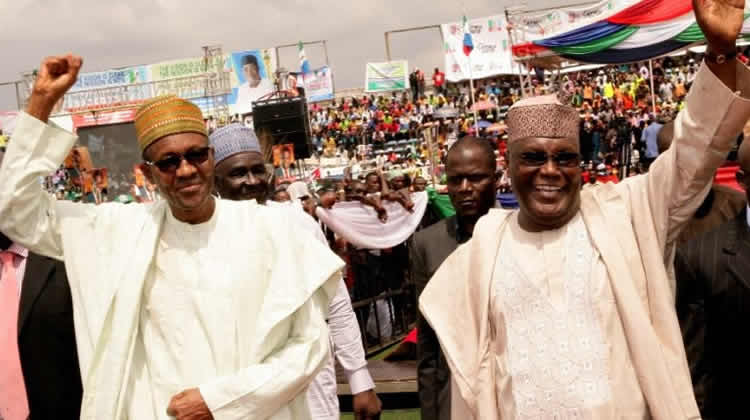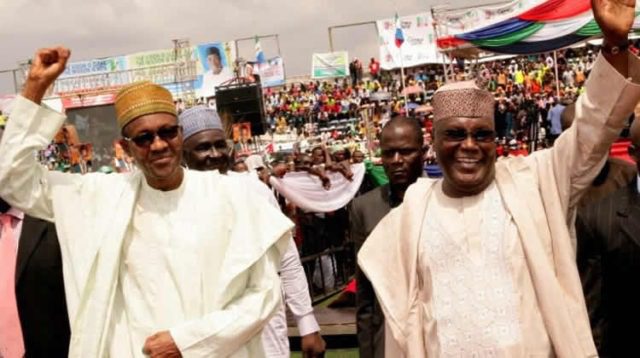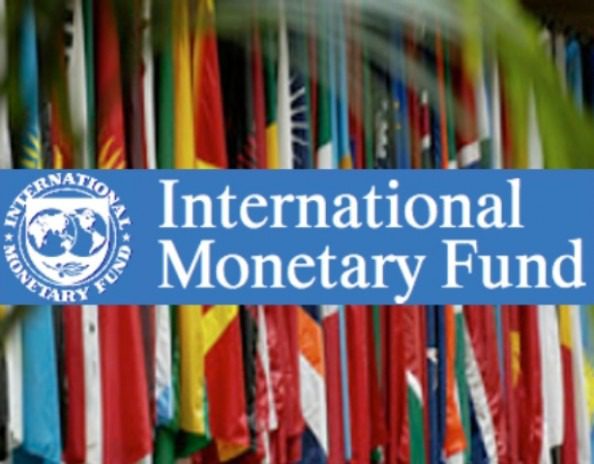National Issues
The Electoral Bill and the Meaningless Peace Pact -By Rafiq Raji
The peace pact recently signed by presidential aspirants in the upcoming poll is largely symbolic. Politicians would still do whatever they can get away with to win; legal or otherwise. Even so, it was important that they all signed. That is why it was a little unsettling when the leading opposition party’s candidate Atiku Abubakar was absent at the formal signing ceremony of the pact on November 11.

I finally happened on a title for a future book, if I ever write one. “Awon Alariwo”, properly translated as “The Noisemakers.” It is a perfect metaphor for the Nigerian situation. We are quick to make a show of everything but do almost little else.
The Nigerian would borrow money to buy a Range Rover than build a business. We would rather take our friends out to show off our phony success than 
Why, I often ponder, would a Nigerian not hesitate one bit to roll up his or her sleeves when in “The Abroad” but once on our shores, s/he develops an ego. It is astonishing how much time a great proportion of the Nigerian youth population wastes on unproductive activities. But that is a discussion for another time.
The peace pact recently signed by presidential aspirants in the upcoming poll is largely symbolic. Politicians would still do whatever they can get away with to win; legal or otherwise. Even so, it was important that they all signed. That is why it was a little unsettling when the leading opposition party’s candidate Atiku Abubakar was absent at the formal signing ceremony of the pact on November 11.
It was a huge missed opportunity. A picture of the two leading presidential candidates holding hands would have been very helpful optics. Whether the eventual signing by Atiku Abubakar the next day was an afterthought or not is probably irrelevant now. They have all signed. And that is that. Not that it would necessarily stop any potential violence.
Mr. Abubakar also implored President Muhammadu Buhari to sign the amended electoral bill, which he refused assent to recently. Mr. Buhari attributes an ECOWAS protocol against making significant changes to electoral laws too close to a poll, as reason for not signing the bill; amongst other reasons.
Clement Nwankwo, convener of the Civil Society Situation Room, affirmed to Channels Television, a well-regarded Nigerian TV station, on December 12, that the Presidency was asked if the amended bill (in light of previous feedback from Mr. Buhari) was to its satisfaction before the National Assembly sent it back for presidential assent; for the umpteenth time. The next day, the same news media organisation asked the president’s legislative liaison, Ita Enang, if he was one of those who advised the president not to sign the amended electoral bill. He pleaded a privilege.
What I think is that the president’s political strategists likely prefer the more ‘flexible’ old law. The leading opposition party would probably have a similar preference if it were the ruling party. Still, the president would likely sign the amended electoral bill if it would not apply to the 2019 polls. Thus, I would rather the legislators simply make that little change and send it back for his assent.
True, it would have been great to have the new law for the imminent polls. But if the incumbent has exercised his presidential powers, it would be best not to risk losing the opportunity of making future elections better all together.
Should the legislature override him? If they can, they should. But it is doubtful they would be able to muster the two-third votes in both houses needed to do so. It is probably needless. If our politicians are genuinely interested in violence-free, free and fair elections, they do not need any law to bring that about.
The same sentiment applies to vote-buying. The key stakeholders are saying all the right things about how it is wrong and should be curbed. And yet, most of the mainstream politicians, if not all, are guilty of the act via varied pretensions like “mobilisation”, “logistics”, and so on.
Rafiq Raji, a writer and researcher, is based in Lagos, Nigeria. Twitter: @DrRafiqRaji


















